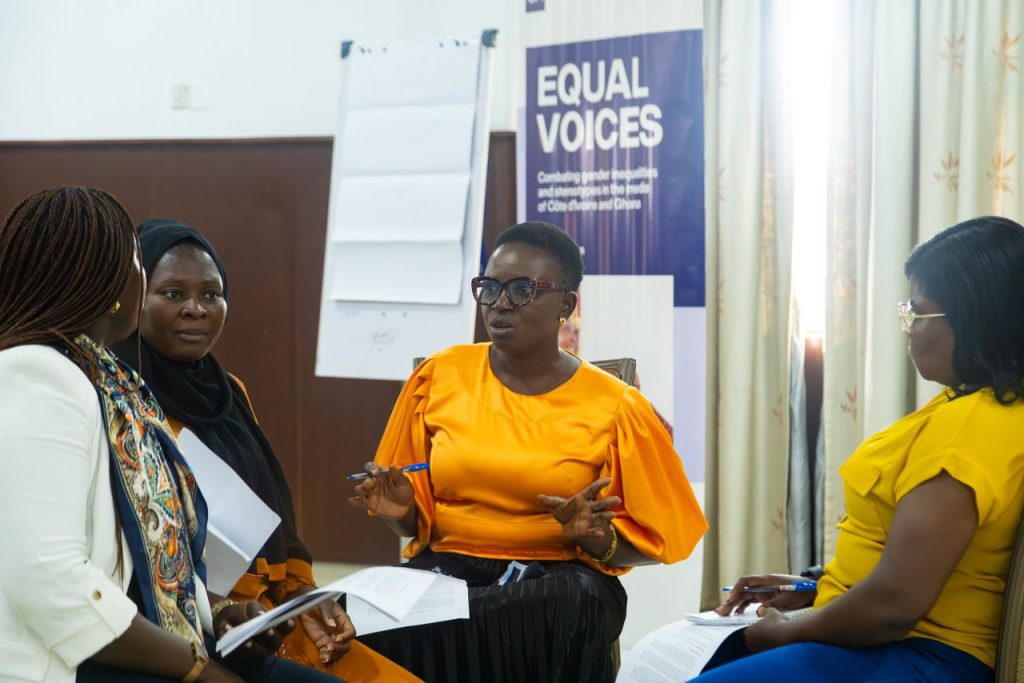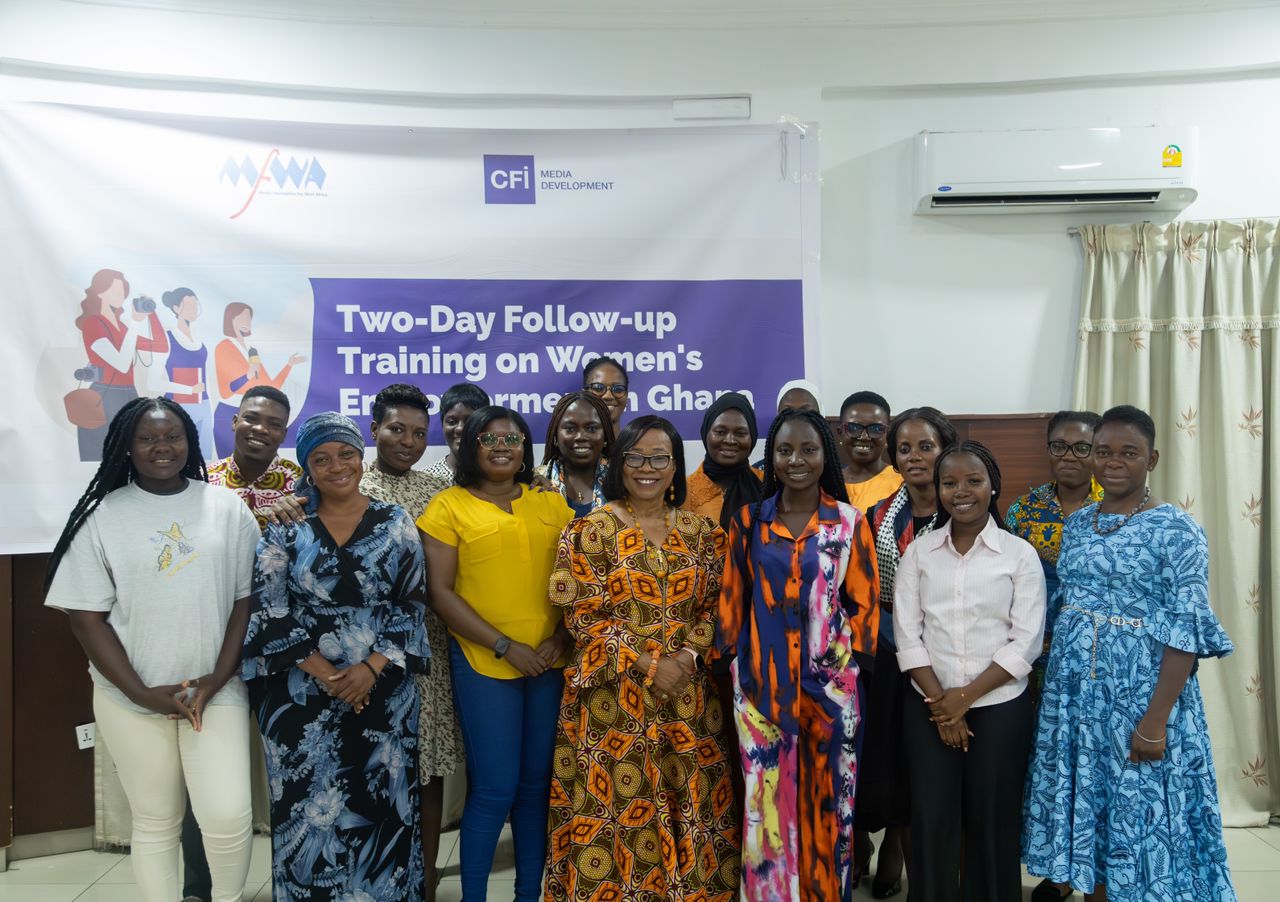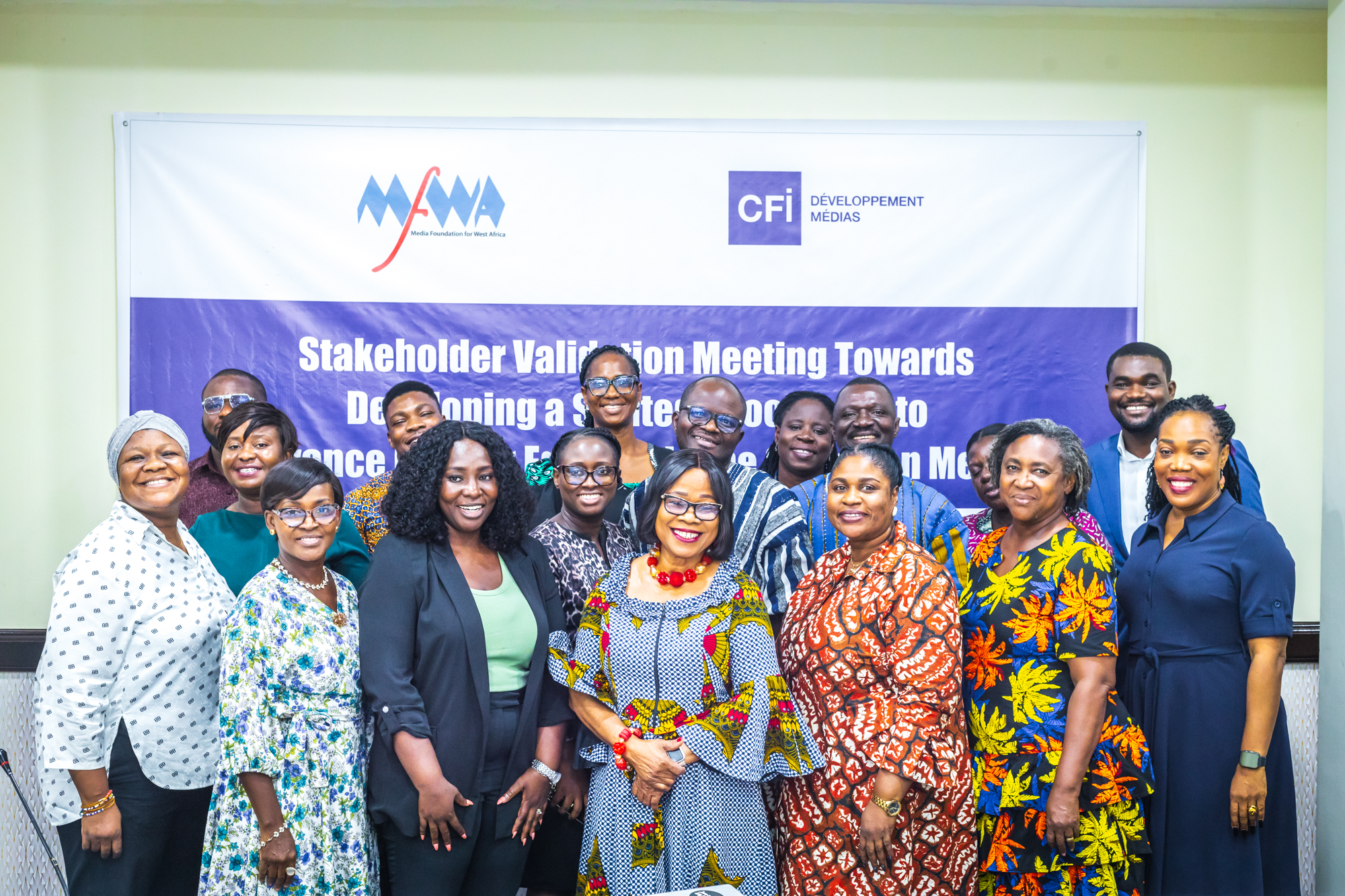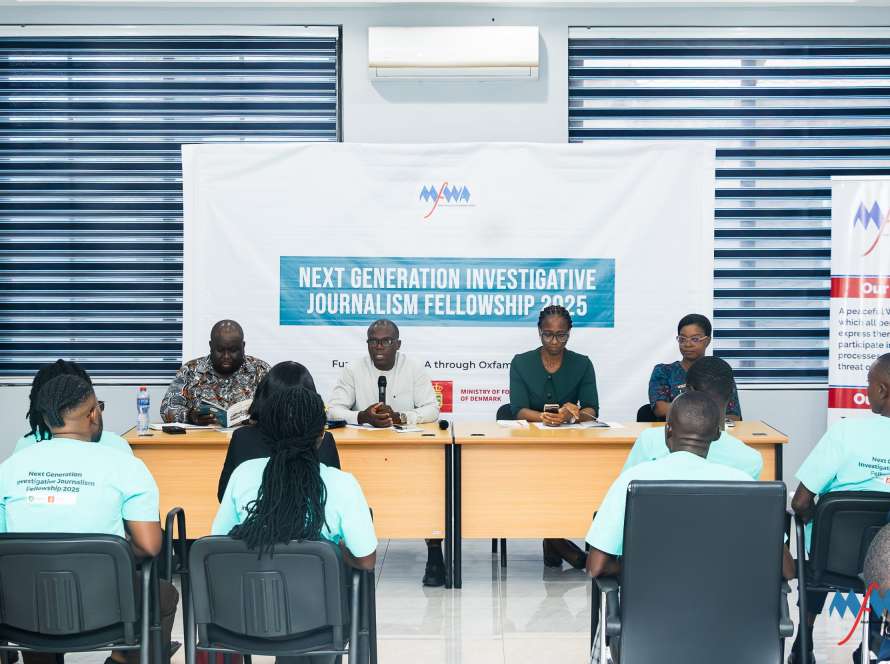The advocacy for gender equality in the Ghanaian media is witnessing impressive gains, thanks to the Media Foundation for West Africa (MFWA)’s Equal Voices project, which is jointly implemented with French media development agency, Canal France International (CFI).
The project is aimed at combatting gender inequalities and stereotypes, and promoting women at all decision-making levels in Ivorian and Ghanaian societies through gender-sensitive media. The project also seeks to strengthen the capacities of male and female media professionals to promote and develop managerial and editorial policies that promote a better and a more balanced representation of women.

As part of activities under the project, a two-day follow-up training on women empowerment was held in Accra from October 15 to 16, 2024. It brought together female journalists who had previously participated in the initial training on women empowerment. The gathering provided a platform for the beneficiaries to share the impact of the knowledge and skills they have acquired.

Anita Serwaa Adzoga, a journalist with the Multimedia Group Ltd, specifically JoyNews and Luv FM, recounted how the training inspired her to co-establish a gender desk in her newsroom to prioritize gender-focused reporting. She has since written compelling articles, including one on the challenges faced by female camera technicians in a male-dominated industry and another highlighting the struggles of women with special needs during menstruation.
Beyond storytelling, Anita has taken a hands-on approach to empowerment in the quest to contribute to breaking barriers in the field. “I also trained a female intern in camera handling to empower young women. Throughout my work, I have been deliberate in highlighting gender-related narratives,” she said.
Another participant who has championed the set-up of a gender desk in her church is Victoria Agyemang of the Cape Coast bureau of the Ghana News Agency.
“We have created a gender-based desk at church where pertinent issues affecting the youth, especially women and children, are brought to the fore for discussion and possible solutions.”
Victoria says the trainings have since built her confidence and for the first time, enabled her to lead the coverage of illegal mining (galamsey) activities in her region.
For Pearl Akanya Ofori, a freelance journalist, the training she received inspired her to launch a mentorship programme for aspiring media professionals.
“After the training in July, I felt the need to start a training program in newscasting, voicing, and documentary filmmaking. Currently, I have three people I am training and I intend to increase the number. The bigger plan for me is to start a media training school for journalists,” she said.
Pearl added that the trainings have helped her to build her self-confidence, become more assertive, and also build strategic, mutually beneficial relationships with colleague journalists.
As a seasoned media professional, Akosua Frema Frempong from the Ghana Broadcasting Corporation (GBC) explains that the trainings have rekindled her interest in writing gender-sensitive stories. Akosua has since written several gender related stories. “Amongst the stories I have written and broadcasted are stories on International Day of the Girl child, the Affirmative Action Bill, and International Day of Women. I have also facilitated the airing of a drama on giving equal opportunities for both females and males”, she notes.
She says she has also taken it upon herself to help the youth in her church and also mentor young people who go on attachment or undertake their national service with the GBC.
Humu-Khrusum Tahiru, the Gender Desk Editor at A1 Radio notes that “because of this training, I accepted to lead a group of women in media in the Upper East region known as Women in Broadcasting.”
Humu, who was adjudged the Best Female Journalist of the Year 2023 at the third Upper East Region Ghana Journalists Association Awards for an impactful documentary that highlighted the challenges facing female aspirants in the District Assembly Elections, says the Equal Voices project has helped her better appreciate the work she does as a journalist and has since become more confident and gender aware. “In the past, I made excuses when called to mentor other ladies, but it is much different now. I now wear a gender lens in all aspects of my life.”
Her colleague Mercy Yamtot, who is the Assistant Gender Desk Manager at A1 Radio also played a pivotal role in reviving the Women in Broadcasting (WIB) initiative, taking up the position of Financial Secretary. Mercy has also used her platform to lead public campaigns for peace and engage in mentorship programmes, furthering the cause of gender equality.
Mona Lisa Frimpong, a journalist with JoyNews in the Ashanti Region, is making significant strides in addressing gender issues through impactful journalism. She has started producing feature stories on women’s sexual and reproductive health, as well as challenges faced by women in the informal sector. Additionally, Mona Lisa has co-created a gender desk at the JoyNews newsroom in Kumasi and advocated for gender-friendly building designs through a formal memo.
For Ewurama Attoh, a broadcast journalist and Marketing Manager at Makenba Media, the training has brought tangible benefits. Ewurama has mentored six young women over a 60-week career guidance program, a feat accomplished in collaboration with the Savannah Women Integrated Development Agency.
Rebekah Awuah, a documentarist and filmmaker with The Fourth Estate, the MFWA’s flagship accountability journalism project, the trainings have sharpened her attention on gender issues. “I have concentrated on putting together cutting-edge documentaries on women’s voices in parliament and governance while highlighting issues of injustice to mothers during childbirth and supported one girl to pay fees for the university,” she says.
Another participant, Christiana Anyang-Mintah, of the GBC says as a result of the trainings, she has become more self-aware.
A Producer cum Director at the state broadcaster, she says she has started gender-focused TV productions. The programmes include ‘Sexual Harassment in the Workplace,’ a drama production; ‘Causes of Teenage Pregnancy in Ghana: An Examination of Socio-Economic Factors,’ among others.
“During the discussion, we had a lot of calls, especially from women asking for legal advice because they had been thrown out of their homes after their husbands died. After the programme, one widow came to our premises asking for legal help because her husband’s car and house had been taken from her. We took her to a lawyer who is currently helping her to get what she deserves,” she says.
Thus, through the Equal Voices project, beneficiaries are challenging gender norms, leading pro-gender initiatives, mentoring future leaders, and contributing tangibly towards gender equality in Ghana.






